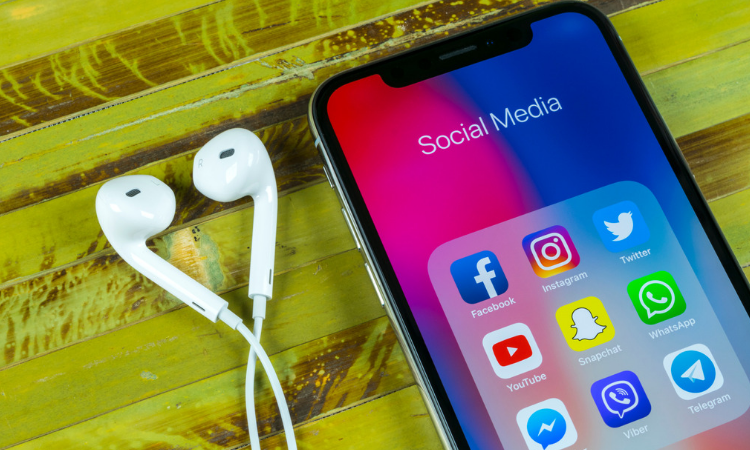Who says the ADL dictates what we see on the Internet?
You’ve heard, no doubt, of the “snowflake” meme. It’s a term describing usually left-leaning college kids and a vast assortment of minorities who’ve either never heard of, or forgotten, the playground rhyme, “Sticks and stones may break my bones. But words can never hurt me.” Snowflakes demand shelter from unpleasant words and other realities. College administrators and fellow enablers often go along, creating “safe spaces” where those oh-so-tender sensibilities won’t be offended.
To which I say, yeah, that nursery rhyme might be a bit rough. But, believe it or not, life can be a bit rough. Get used to it. And, at the very least by the time you’re a young adult, you should’ve developed some pretty stout psychic callouses.
Safe spaces? Or thought crimes?
Okay. You’ve heard about the college campuses. But you probably weren’t aware that there’s an organization out there doing its best to transform the entire internet into a “safe space.”
It’s called the Anti-Defamation League (ADL), a Jewish pressure group that’s the self-anointed sheriff of internet “niceness.” Or, more accurately, an enormous, well funded posse that, on occasion has taken the law into its own hands to achieve it’s ends.
Consider, for example, an incident that occurred in my home town, Denver. What began as a petty dispute between neighbors, one Jewish, the other Catholic, over unruly dogs rapidly escalated into a blizzard of civil and criminal suits involving charges of anti-Semitism and counterclaims of defamation in the Quigley vs ADL case.
The Aronsons, infuriated by the Quigley’s dog, and on the advice of their ADL attorney, violated federal and state law by tapping the Quigley’s wireless phone. The ADL attorney then held a press conference claiming that the phone transcripts demonstrated that the Quigley’s were “vicious anti-Semites.” The attorney repeated the accusations on a radio talk show. Using the ADL provided transcript, the local DA piled on against the Quigleys with a criminal case.
The Quigley’s denied being anti-Semites and counterclaimed for defamation, asserting they’d been ostracized by neighbors and even had to sit through a sermon denouncing them at the Catholic church they attended.
The outcome of this mass of suits, counter suits, and criminal charges?
The Federal court found that while the Quigley’s, perhaps, didn’t use “nice” language to describe the Aronson’s in their illegally recorded private conversations, the Quigleys weren’t anti-Semites. The court hit the ADL with a $10 million punitive damages penalty in the civil case. Bear in mind that punitive damages are awarded, in part, according to a defendant’s ability to pay. Didn’t I tell you the ADL was well endowed?
The ADL’s origin myth? Or its history?
While the ADL proclaims that it’s mission is to ride herd on the internet for all aggrieved groups, it’s primary focus since its 1913 founding has been combating anti-Semitism. And, as the Quigley case demonstrated, it can be aggressive to the point of lawlessness in doing so.
But the Quigley case pales in comparison with the 1913 Leo Frank case from Georgia. (To provide a sense of the significance the ADL attaches to the case, the organization’s website devotes 10 pages to the Frank story.)
Frank was was a Jewish factory manager who was convicted of the murder of one of his employees, thirteen year old Mary Fagin. Frank’s legal team, which had virtually unlimited financial resources provided by Jewish groups all over the nation, unsuccessfully attempted to persuade the jury that either a janitor or night watchman, both black, committed the crime. Frank was sentenced to be hanged, but the Georgia governor, after a series of appeals that went all the way to the U.S. Supreme Court, reduced his sentence to life in prison. Enraged Georgians, including a former Governor, took matters into their own hands, abducted Frank from prison, and lynched him.
Does the ADL ever rest?
The very lengthy Wikipedia account of the Leo Frank case begins by stating that, “Today, the consensus of researchers on the subject holds that Frank was wrongly convicted.”
An even lengthier examination of the Frank case is found on “The Unz Review: An Alternative Media Selection“. It reaches the opposite conclusion. Ron Unz, the man behind The Review and the author of it’s Leo Frank article, is a libertarian-leaning Jewish businessman who unsuccessfully ran for Governor of California in 1994.
While both accounts of the Frank case leave leave little doubt about its complexity, there is one odd fact that apparently separates them: wherever I was, I could easily get online to view the Wikipedia account of the case.
Not so with the Unz version. At a coffee shop, The French Press, where I frequently blog, I was denied access to the specific Unz article dealing with the Frank case. When I attempted to open the article, I got a message about a something called a DDoS. So, rather than taking me to the Unz/Frank article, my computer just kept grinding away, promising to take me to the site later. It never happened.
Had the ADL persuaded the coffee shop’s internet provider, or some other entity, to target the Unz article? No idea. But what happens when you click on this link?
The Czarina of the internet
Brittan Heller, profiled here, is the young woman who’s the ADL’s “director of technology and society.” Heller, in other words, is the ADL’s designated snowflake protector. She sued and won a cyber-harrasment suit against an internet provider that failed to block messages from individuals who were harassing her. A book recounting her experiences is given to content screeners at places like Twitter. “Screening” is a rapidly growing field that employs thousands looking for content that offends the sensibilities of the ADL and other snowflakes.
I note, in passing, the irony of the key role Jews have played in dramatically expanding First Amendment protection for pornography. Which efforts have been glowingly portrayed in the book, Unclean Lips: Obscenity, Jews, and American Culture by Josh Lambert, academic director of The Yiddish Book Center. So, I guess, anything goes with obscenity. But watch out for those anti-Semitic, sticks and stones!
The internet and the Constitution
Now, understand, I’m no First Amendment or freedom of the press scholar (even if I did scrape through a middling law school decades back). But I am aware that there are adequate legal remedies if defamatory material makes its way through the internet pipeline. That the ADL is perfectly aware of these remedies is obvious from it’s own multi-million dollar blunder in the Quigley case.
“But that’s different,” you say. “The government isn’t censoring content on the internet. Facebook, Twitter and Google are private companies. They’re the ones doing the censoring.”
But aren’t these internet information companies more like mere conduits, through which flow vast amounts of data, usually from other sources? Most of which is unobjectionable. But, admittedly, some of which is vile. Perhaps a reasonable comparison would be, “Should electric or water utilities monitor the activities of their customers, either private or commercial, and cut off service to those that hold views that offend the sensibilities of snowflakes?” I doubt that even the ADL would advocate such draconian, unenforceable measures.
And, if that’s so, why should the ADL and its fellow snowflakes be given a veto over what sluices through the internet’s aquaducts? Or, if you like, its sewers?
The short answer? They shouldn’t. And like your local power company, they should service all comers. Regardless of their political views.




